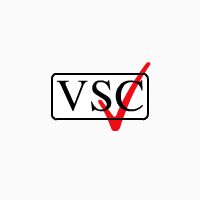PEGI in the UK
 16 June 2009 : VSC welcomes UK government decision to grant it new powers to rate video games.
16 June 2009 : VSC welcomes UK government decision to grant it new powers to rate video games.
The Video Standards Council (VSC) is to become the designated authority for classifying video games in the UK, the DCMS announced today
All games will receive ratings from the Pan European Rating Information system (PEGI), bringing the UK fully into line with 29 other European countries. The VSC will be responsible for ensuring that games comply with PEGI standards before providing licences for them to be sold in the UK.
The VSC is a robust organisation independent of the games industry and will ensure that PEGI fully embraces UK sensitivities in the PEGI age rating system
The change will provide clarity for parents, children and gamers alike. Clear, uniform and consistent PEGI ratings will be applied to games, whether bought from shops or via the internet and whether played online or offline.
There has always been a good working relationship between the VSC and the BBFC. In its new role the VSC looks forward to working with the BBFC to bring the change about.
Welcoming the decision, Baroness Shephard, President of the VSC, said:
"The Government has today taken a major step to improve child safety, online and offline, in the video games sector.
PEGI is a robust, independent games rating system used widely throughout Europe and beyond. VSC is the leading PEGI authority, rating all video games aged 12 and above in 30 countries. By making PEGI legally enforceable in the UK, the Government has shown that it is determined to protect children, help parents make informed decisions and deliver consistency in games rating."
As part of the decision announced today by DCMS Secretary of State Ben Bradshaw MP,VSC will be given powers to ban a game which infringes the Video Recordings Act from sale or distribution in the UK. The power will be granted following Parliamentary approval.
Baroness Shephard said:
"VSC will exercise this new power independently of the PEGI system, providing a ‘fail-safe' for the UK – protecting children through PEGI and addressing UK-specific sensibilities by refusing classification of any game which falls foul of the Video Recordings Act. This decision is the right one for consumers in the UK."
PEGI system adopted for all UK games
An overhaul of video games classification rules will make selling a video game rated 12 or over to an underage person illegal for the first time, Creative Industries Minister Siôn Simon announced today.
The PEGI (Pan European Game Information) system, currently used in most European countries, will become the sole method of classifying video games in the UK. It will replace the current hybrid system that has two separate sets of symbols, either of which can appear on video games, and is sufficiently adaptable to work in the rapidly expanding online games market.
Today's announcement also heralds a new role for the Video Standards Council (VSC), an organisation which is independent from the games industry and will take a statutory role, with a mandate to implement the PEGI classification system for all video games in the UK.
This new system will work alongside the robust regulation of Films and DVDs carried out by the British Board of Film Classification, to ensure that consumers have the strongest possible protection across these media. There is no intention to disturb BBFC's jurisdiction in respect of linear material. The BBFC will continue to provide Blu Ray distributors with a one-stop service as at present. It is important that the BBFC and the VSC work together to share best practice in a rapidly changing and demanding media landscape.
The Government will now work closely with PEGI and the VSC on the development of a single, clear set of age-rating symbols to give parents the information they need to ensure that children are protected from unsuitable content, and help retailers to avoid breaking the law by selling games to people below the appropriate age. The new system will consist of five age categories and a series of pictorial boxes, describing content such as bad language or violence.
Announcing today's decision as part of the Digital Britain report, Siôn Simon said:
"Protecting children and giving parents a clear and robust new system has always been our starting point. The new system of classification follows the essential criteria set out by Professor Tanya Byron, who recommended a trustworthy, uniform and clear set of symbols that is flexible and future proof.
"We will now work with PEGI and the VSC to agree exactly what the new symbols will look like and how they will work in the UK market, to ensure they provide the clarity and safeguards that are needed.
"The UK already has a robust system of classification for films and DVDs run by the BBFC. The new system of games classification will match those high standards as this important market continues to evolve."
Today's announcement follows an in-depth period of consultation by Government that started with Professor Tanya Byron's landmark report Safer Children In A Digital World, published in March 2008.
Professor Byron said:
"In my review to Government I identified the need to improve the video games classification system. I identified some fundamental criteria including making games suitable for 12-year-olds and above subject to statutory control. I also said the system had to have child safety at its heart and have the ability to adapt to future challenges. All these criteria are important for ensuring that parents have the tools they need to make informed choices and keep their children safe.
"The PEGI system has been strengthened since my review and the Government has consulted widely on each of my suggested criteria. I support the Government's decision to combine the PEGI system with UK statutory oversight."
The new system:
· mirrors the way games are classified in much of Europe, which is increasingly important as more games are played online and across international borders;
· is designed with child-safety as its main priority;
· is highly adaptable and works well for games distributed both on and offline; and
· includes tough sanctions for manufactures who flout the rules, for example by making a false declaration about a game's content. These include fines of up to 500,000 Euros and a refusal to classify.
Currently two sets of symbols can be found on video games sold in the UK: BBFC and PEGI. Under the existing system, the BBFC has a legal duty to classify games that depict "gross violence or sexual content". All other games are classified on a voluntary basis under the PEGI system.
The new system will extend PEGI's remit so that all games are classified using its symbols. Information on the content of each game will be submitted to PEGI administrators including the Video Standards Council, which will then review each game to ensure it complies with the law. Following this evaluation, the manufacturer receives a licence to use the PEGI rating logos. The VSC, as statutory authority, will take account of UK sensibilities, and will have the power to ban games that are inappropriate for release in the UK.
PEGI's code of conduct determines which age rating is appropriate for different types of content. The PEGI Advisory Board, which includes representatives of parent and consumer groups, child psychologists, media experts and lawyers, maintains the code and recommends adjustments in line with social, technological or legal developments.
The games industry is now committed to funding an extensive public awareness and education campaign, ensuring the PEGI symbols are recognised as widely as possible, and giving parents, retailers and game players of all ages the information they need to act within the law and make informed choices about suitable content.
Notes to editors
1. Professor Byron's report, "Safer Children in a Digital World", is available at: http://www.dcsf.gov.uk/byronreview/ . One of the key recommendations to Government was an overhaul of the system of video games classification, which she considered lacked clarity and the legal status needed to ensure that it protects children from unsuitable content.
2. Video Games currently only fall within the statutory classification regime set out in the Video Recordings Act 1984 if the contain gross violence or sexual content.
3. Introducing a new system of classification and increasing the statutory role of the VSC will require primary legislation.
4. The VSC has no video games publishers on their Board and members of staff are not taken from the industry. They are also not funded directly by the industry as all fees are paid to PEGI. When fully established, the VSC will commission research into UK sensibilities and be able to offer the public reassurance that their views have been taken into account within the wider guidelines.
5. PEGI is independent from the games industry. The PEGI Advisory Board comprises of fully independent experts and representatives of culture departments from Governments across Europe. PEGI criteria for rating games can only be altered by the PEGI Advisory Board. There are no games publishers on the PEGI Advisory Board.
6. The PEGI administrators will thoroughly examine each game before awarding a classification. The publisher is required to fill in an initial form declaring game content, which is used by the VSC to determine the validity of the declaration when compared to their own examination. PEGI has the power to impose strict sanctions (fines or refusal to classify) should the publisher deliberately offer a false declaration.
7. The views of the public are important in determining the relationship between age rating and suitability of content, which is why the VSC will commission research into UK sensibilities which it can feed into the PEGI criteria. Part of the reason for having a UK statutory body overseeing this process is that in some instances the British public may be particularly sensitive to certain types of content. Should the public have a significant reaction to a particular game classification this will be fed back to the PEGI advisory board who will revise the criteria accordingly if appropriate.

